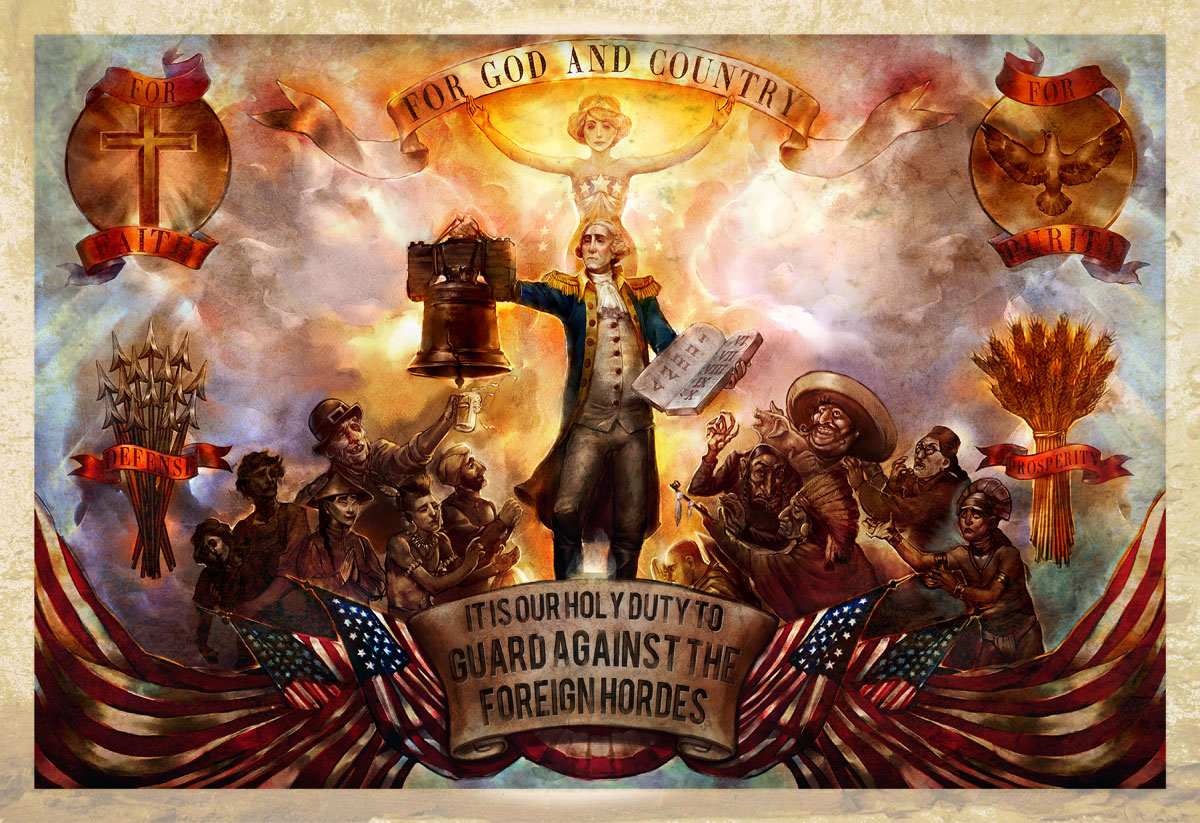Garry Schyman reflects on his most recent score, BioShock Infinite.
GamerHub.TV: Did Ken Levine contribute to the score?
He didn’t contribute to anything that I did specifically. I know he was very involved in listening to all the music, whether it was the source music or the music that I did. He was very involved in every aspect of making the game. Whether he wrote any music I don’t know.
GamerHub.TV: With BioShock Infinite set in 1912, did the time period’s music fit for what the game was trying to convey?
The music of that period is made up of either European classical music or American songs a la Stephen Foster as I just mentioned. Other than that one cue that involved the use of the style of that Stephen Foster song, the music of that period was not particularly useful in determining the style of the score. It just wasn’t going to convey the emotional breadth, nor the danger, or the various needs that the score needed, so to a great extent I ignored the period’s music. Now the source music definitely is very much of the period. But as far as my score is concerned, other than that one cue, the music of that period was not critical to the sound of the score.

GamerHub.TV: When we first meet Elizabeth, the music instills the idea that she is vulnerable, and needs our help in that scene. Was that on purpose?
Yes, she is quite naïve when you first meet her because she has been walled off from the real world and she only has books and her own bizarre skills to open these tears and see the world. So she’s very naïve about the world and she’s been isolated from that world as well for her whole life. So yes, the music is definitely there to portray her vulnerability, though she becomes more and more powerful as the game proceeds.
GamerHub.TV: Songbird is a gigantic creature that flys around the city. How did you write music that conveys the size of a figure to an audience?
The music I wrote for it was directly related to any particular scene that Songbird was in that needed music. So those cues were really to fit a specific moment. Obviously he’s a giant and frightening creature. There is a moment when Songbird is portrayed sympathetically and you’ll have to play the game to see where and how. In general Songbird is portrayed musically as a frightening, scary element that controls Elizabeth and frightens her.
GamerHub.TV: What was your vision of the Songbird before you saw how it would look in-game?
I didn’t know about Songbird until I saw him in-game. I really was not privy to that. The first time I saw Songbird was a scene that I scored fairly early on and he was pretty frightening and intense.

GamerHub.TV: In the song titled, “The Girl For The Debt” is probably my favorite song from the score. The violin work shows the promise of Columbia, but then it quickly becomes very chaotic due to Booker's situation. What’s your approach in incorporating violin in your work?
I used small string ensembles to score most of the game and the violin clearly is a critical part of that, and of course part of that particular cue as well.
GamerHub.TV: I’ve noticed a trend listening to the score that most of the music isn’t long. Is that to make it easier to loop the track?
The tracks are as long as the development team requested. There was no specific purpose in my mind other than to give them exactly what they required. Very often I was scoring specific moments and scenes.
GamerHub.TV: When you scored the finale, what were your emotions?
That was interesting because the game’s development team kept the finale away from most of us who were working on the game. It was a secret until the very last minute. So literally the finale was one of the very last scenes that I scored. I have to say I was really surprised by it. It’s a really interesting moment and it is shocking. I was taken aback by it but I was also excited. It was an amazing ending to the game. How many movies start out with a great idea and then the ending is just flat? In the BioShock games, like any great movie, they have been very successful at really creating experiences that not only are fantastic and involving from the very beginning but that have these amazing and really interesting endings and that’s certainly true of Bioshock Infinite. I don’t know if I had an emotional reaction so much as “wow, that’s just unbelievable, that’s really cool” and then I had to score it, I had to generate the emotions that I was seeing in that scene.

GamerHub.TV: Do you have any issues with the content in BioShock Infinite? (Racism, political, etc.)
No. Racism is shown in all of its repugnant ugliness in Bioshock Infinite. It’s not shied away from but they portray it in a very ugly way as it should be portrayed, and the music reflects that when I score some of those scenes. I didn’t have any issues with that or the political content. I think it makes the game more interesting, it makes the game deeper.
Once again with Bioshock Infinite, as with the original BioShock, you have these debates now about whether games are art and I think that’s one of the most wonderful things that the Bioshock series has brought to the foreground as how artistic or thought-provoking games can really be.

